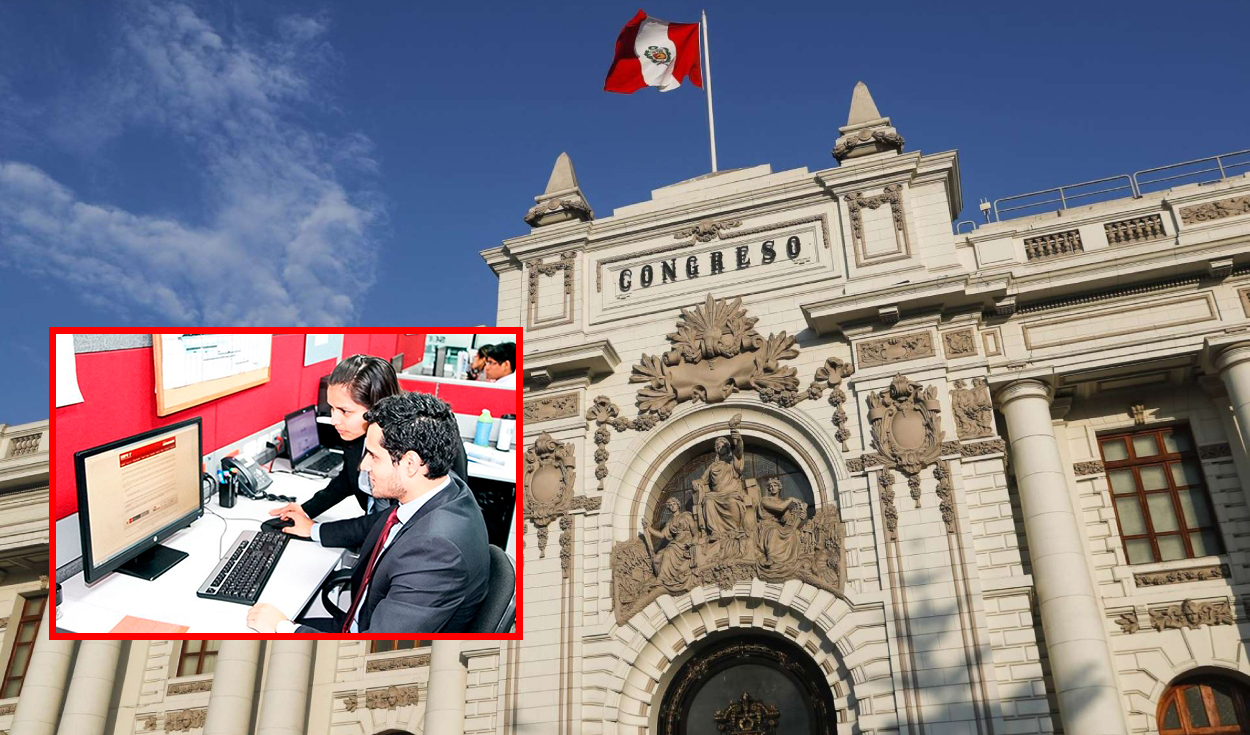
A few weeks ago, the Congressional Labor and Social Security Commission approved an opinion that seeks to harmonize the labor rights of workers included in the CAS regime. Through this legislative proposal, the aim is to provide more benefits to State employees who are under this modality, such as the payment of bonuses, CTS, schooling bonuses, among others.
In order for this opinion to be forwarded to the Plenary, it will first have to be discussed in the Budget and General Accounts Commission of the Republic. Subsequently, the Board of Directors will decide whether to schedule it in the next session of the highest legislative assembly. Let us remember that Parliament ended its legislature for the period 2023-2024 last Saturday, June 15.
CAS workers could receive CTS and other benefits: what is the ruling about?
With 10 votes in favor, 2 against and 1 abstention, the Labor Commission chaired by Pasión Dávila approved last Tuesday, June 4, the opinion that seeks to recognize Legislative Decree 1057 (CAS) as a labor regime and that delegates to the Executive Branch the harmonization of labor rights of its workers.
Under the scope of this legislative proposal, employees who work under the CAS modality will be able to access the following rights:
- Access to a career path that allows you to achieve a career path in your workplace.
- Remuneration scale that determines financial compensation according to their performance.
- Rest or leave for your birthday, provided that the entity where you work has established in its internal regulations the same benefit for other servers.
- Gratification for National Holidays and Christmas.
- Allocation for years of service.
- Compensation for Time of Service (CTS).
- Subsidy for the death of the worker and the spouse.
- Subsidy for funeral expenses.
- Bonus for schooling.
- Retirement age at 70 years.
- Protection mechanisms against unjustified dismissal.
- Household allowance.
- Modalities of job displacement such as: rotation, assignment, exchange, assignment, transfer and others, under the same conditions as other workers with similar employment status.
Furthermore, the provisions included in this standard must be applied by all State institutions at the three levels of government: Executive Branch, regional governments, provincial and district municipalities, Judicial Branch, Legislative Branch, autonomous organizations, attached entities and other organizations, special projects and state programs.
Finally, the Executive Branch will be in charge of progressively implementing the recognition of these new rights in favor of CAS workers. “The entities referred to in article 2 are authorized to introduce the budget modifications necessary to comply with the standard. The owners of each sector must support their budget request at their own expense,” states article 5 of the aforementioned opinion.
What is missing for this opinion of the Labor Commission to be approved?
Despite the contrary opinion of the Ministry of Economy and Finance (MEF), the Labor Commission approved on June 4 the opinion that proposes granting the recognition of rights to workers subject to the CAS regime. According to the MEF, this rule “would generate greater budget allocations to the respective public entities, with the consequent increase in resources to the Public Treasury.”
However, for parliamentarian Jaime Quito, said proposal “recognizes equal rights and social benefits for CAS workers.” In that sense, the non-grouped legislator considers that “it is a measure that cannot be postponed and that they must be guaranteed the same “rights that state workers of the 728 and 276 regimes have.”
Although the norm was approved in the Labor Commission, the issue must still be ruled on by the Budget Commission so that it can be referred to the Board of Directors, and in this way it is scheduled in the Plenary Session, which will resume work at the beginning of the legislature scheduled for July.
“On April 27, I presented the project at the Decentralized Hearing of the Budget Commission, several congressmen were in favor, so we will ask for it to be approved at the beginning of the next legislature,” said Quito.
Source: Larepublica
Alia is a professional author and journalist, working at 247 news agency. She writes on various topics from economy news to general interest pieces, providing readers with relevant and informative content. With years of experience, she brings a unique perspective and in-depth analysis to her work.












